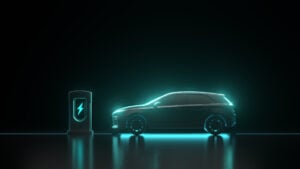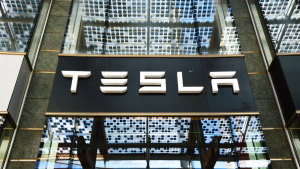The global auto industry faced significant challenges in 2023, including protracted strikes at major US automakers, growing consumer divisions over autonomous vehicles, soaring used vehicle prices, and substantial and costly recalls for various automotive manufacturers. Meanwhile, governments worldwide continued to incentivize the adoption of electric vehicles (EVs) while grappling with infrastructure development. As the automotive sector gears up for 2024, what key trends and insights can we anticipate in the coming year?
Electric Vehicle Sales Surge

Despite talks of waning demand for electric vehicles throughout 2023, recent sales figures tell a different story. In the US, electric vehicle sales surpassed one million units in 2023, marking a historic milestone and accounting for 7% of all vehicles sold in the country. Globally, electric vehicles comprised 15% of all new passenger vehicles sold, marking another record. These figures affirm the accelerating growth of EV adoption, with sales expected to surge further in 2024.
Leading automakers such as General Motors (NYSE:GM), Toyota (NYSE:TM), and Volkswagen (ETR:VOW3) are ramping up their EV production, positioning the industry for continued exponential growth in the new year. Some industry watchers even talk about an impending “EV tipping point.” Furthermore, global governments’ support for consumer adoption of electric vehicles is underscored by Canada’s recent announcement mandating that all new vehicles sold must be fully electric by 2035.
Tesla’s Ongoing Diversification

Tesla’s market share in the US hit a record low of 50% by the end of Q3 2023, down from 62% in Q1 of the same year, according to data from Cox Automotive. This drastic decline highlights the intensifying competition in the EV market, as established automakers accelerate their electrification efforts. As Tesla’s dominance in the EV space erodes, the company is embracing diversification beyond its electric vehicles and Cybertruck.
Elon Musk, Tesla’s CEO, has been vocal about the company’s foray into artificial intelligence (AI) and the development of a supercomputer called “Dojo,” with an investment exceeding $1 billion. In 2024, Tesla is poised to further diversify its business into new territories, potentially straying from its core focus on electric vehicles, with plans that might even extend to residential solar panels.
The Chip Shortage Relents

The global automotive industry grappled with a severe shortage of semiconductors and microchips in recent years, resulting in significant production disruptions and financial losses. The chip shortage, which caused the auto industry to lose over $200 billion in 2021, is now showing signs of easing. Chipmaker Marvell Technology (NASDAQ:MRVL) has projected relief in 2024, and Infineon Technologies (ETR:IFX), a major manufacturer of automotive microchips, is investing $1 billion to bolster its global production capacity.
These forward-looking measures are expected to alleviate the chip shortage, allowing automakers to ramp up production and mitigate the impact of supply chain disruptions. With the automotive industry poised for a rebound in chip availability, 2024 holds promise for improved production stability and resilience.
On the date of publication, Joel Baglole did not have (either directly or indirectly) any positions in the securities mentioned in this article. The opinions expressed in this article are those of the writer, subject to the InvestorPlace.com Publishing Guidelines.
More From InvestorPlace
The post Automotive Industry Insights: 3 Developments to Expect in 2024 appeared first on InvestorPlace.
